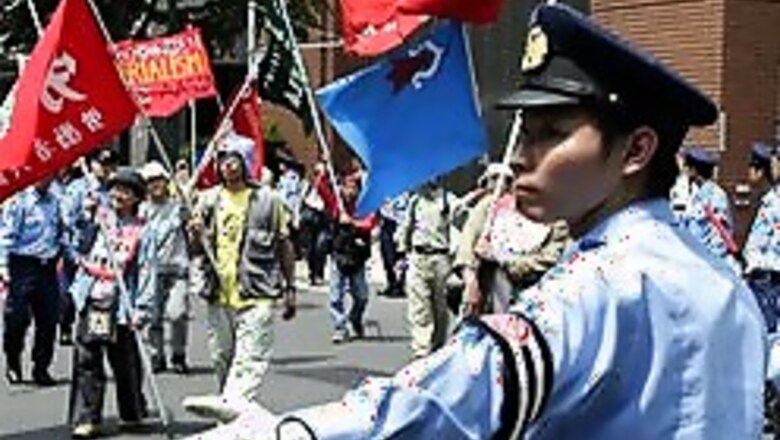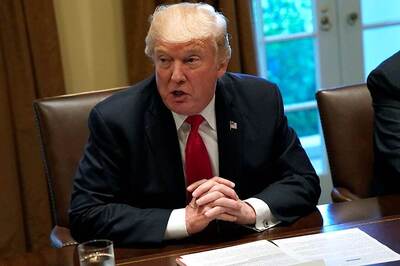
views
Toyako: When the leaders of the Group of Eight (G8) industrialized nations gather in Hokkaido on Monday for their annual summit, they face the challenges of global warming, an uncertain world economy and mounting tensions in the world's hot spots.
Host Japan has put talks on climate change high on the agenda of the meeting in this northern resort town, building on the outcome of last year's summit in Germany, where leaders agreed to seriously consider a target of halving greenhouse gas emissions by 2050.
At a UN climate change conference last December in Indonesia's Bali, about 190 countries agreed on a two-year, UN-led negotiation process with a view to striking an agreement that would succeed the Kyoto Protocol on reducing emissions.
But gaps exist among developed countries and between developed and developing nations over their share of the global efforts to fight climate change, which is blamed for rising sea levels and extreme weather phenomena, such as droughts and severe storms.
No breakthroughs were made at the UN climate change talks in Bangkok and Berlin earlier this year.
The world's largest emitter of greenhouse gases, the United States, has ruled out setting any quantified reduction targets and a timetable, in sharp contrast to the European Union (EU), which has set a medium-term target of cutting emissions by between 20 percent and 30 percent below the 1990 levels by 2020.
Some developed countries, including the US, demand mandatory emissions cuts for developing countries, which were lesser emitters of greenhouse gases and need stronger industrial and agricultural sectors for development.
Data show that some developed nations lead the world in emissions of carbon dioxide, the main driver of rising global temperatures.
"The world economy continues to face uncertainty and downside risks persist," G-8 finance ministers said in their statement following a meeting in Japan last month.
With market losses, a weakening US dollar, food shortages and soaring oil prices threatening to slow down global economic growth, whether G-8 leaders can find the best remedy for the sagging world economy is another key gauge of how much they accomplish in Toyako.
Many of the woes afflicting global economic growth originated from some developed nations or are closely related to their economies.
The US subprime mortgage crisis sent shockwaves to financial markets around the world, hitting investment and spending, and dampening consumer confidence.
US financial and trade deficits and consecutive interest rate cuts caused the dollar to weaken, hurting export sectors of other countries and fanning speculation in commodities.
PAGE_BREAK
Tax barriers and farm subsidies in the US and the EU weakened competitiveness of farm goods from developing countries, reducing supply on the world market.
The steep climb of the price of crude is partly fueled by large consumption and increasing speculation in some rich nations.
Such woes not only stifle growth in developed nations but also curb growth graph in the emerging and developing economies. The rise of food prices, in particular, jeopardises the livelihood of the poor in developing countries.
The Toyako summit, which runs till Wednesday and brings together leaders of Britain, Canada, France, Germany, Italy, Japan, Russia and the US, is also expected to address international security issues that include the Palestinian-Israeli conflict, the Iranian nuclear standoff and the situation in Afghanistan and Iraq.
Although the foreign ministers "reiterate the G-8's full support" for the ongoing Israeli-Palestinian negotiations, the talks have hobbled along due to the failure of all Palestinian forces to speak as one.
As the US and the EU have listed the Hamas as "a terrorist organisation", Israel has ruled out talks with the Palestinian movement.
The West and Iran are still far from agreeing on Tehran's nuclear programme. Iran has offered a response to an updated package of incentives proposed by six major countries -- Britain, China, France, Germany, Russia and the US.
The Iranian government spokesman Gholam Hossein Elham said Saturday that the Islamic republic has made no change in its nuclear stance and will hold on to its right to peaceful use of nuclear energy.
In Toyako, G-8 leaders also need to address worsening security in Afghanistan and the anti-US insurgency in Iraq.

















Comments
0 comment